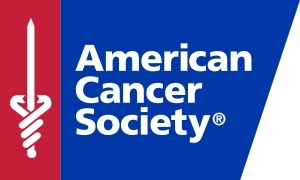KENILWORTH, N.J.--(BUSINESS WIRE)--The Merck Foundation (the Foundation) and the American Cancer Society (ACS) announced today that the Foundation awarded a $1.99 million, five-year grant to ACS to improve support and access to care for people living with cancer in low-and-middle-income countries, particularly in sub-Saharan Africa. This funding will help ACS further develop its capacity development approach to expanding patient navigation to countries with a growing burden of cancer.
More than 70% of the 9 million cancer-related deaths worldwide are in resource-limited settings, where patients face many barriers in seeking a timely diagnosis and receiving high-quality cancer care. Patient navigators—whether nurses providing cancer education or lay health workers linking patients to transportation services in the community—play a vital role in supporting patients from the point of diagnosis at a health facility through their treatment journey.
With support from the Foundation, ACS will fortify its patient navigation program in Kenyatta National Hospital (KNH), a national referral hospital in Kenya, and adapt it for a high need facility in Uganda – The Uganda Cancer Institute (UCI), which serves about 200 patients daily.
“We are excited about the American Cancer Society’s program to bring patient navigation services to cancer patients in areas of the world where care coordination is especially challenging” says Dr. Julie Louise Gerberding, chief patient officer, Merck and vice chair, Merck Foundation Board of Trustees. “Cancer patients deserve quality care delivered with compassion, regardless of where they live.”
This grant is a first step toward broad expansion of patient navigation programs to help more patients in resource-limited settings receive timely, high-quality cancer care. As part of this effort, ACS will develop a comprehensive guide and toolkit to develop and implement patient navigation programs, designed specifically for health facilities in low- and middle-income countries. Lessons learned from collaborating with hospitals in Kenya and Uganda will be incorporated into this guide, which ACS will pilot in health institutions in Asia and Latin America.
ACS hopes to demonstrate that resource-limited health care institutions can use patient navigation as an effective tool to improve cancer care. Looking ahead, ACS will help KNH and UCI integrate patient navigation services into the way they deliver cancer care, with the goal of transforming the patient experience so patients continue to receive the timely, high-quality cancer care they need.
“Over the last 30 years, patient navigation has become a standard of care across the U.S. to address the myriad hurdles that cancer patients – especially the most vulnerable – confront across the complicated continuum of cancer care,” says Sally Cowal, senior vice president of Global Cancer Control, American Cancer Society. “We are eager to bring our expertise in this area to countries where health system challenges prevent patients from getting timely diagnoses and treatment.”
“Uganda has a population of 43 million, but there are only 20 oncologists in the entire country. That’s one of the reasons why patient navigators are so important in helping patients manage the day-to-day challenges that prevent them from receiving care and empowering them to seek treatment and stay in care,” says Dr. Jackson Orem, Executive Director of the Uganda Cancer Institute.
ACS will work with the Rollins School of Public Health at Emory University in Atlanta to evaluate the implementation of the patient navigation programs in Kenya and Uganda as well as the pilot of the program design guide and implementation toolkit. The evaluation team will disseminate its findings to the global cancer community and other interested stakeholders to advance the field’s knowledge of how to effectively support cancer patients in resource-limited settings.
About the American Cancer Society
The American Cancer Society is a global grassroots force of 1.5 million volunteers dedicated to saving lives, celebrating lives, and leading the fight for a world without cancer. From breakthrough research, to free lodging near treatment, a 24/7/365 live helpline, free rides to treatment, and convening powerful activists to create awareness and impact, the Society is the only organization attacking cancer from every angle. The American Cancer Society does not endorse any product or service. For more information about ACS global work, go to www.cancer.org/global.
About the Merck Foundation
The Merck Foundation is a U.S.-based, private charitable foundation. Established in 1957 by Merck, a leading global biopharmaceutical company, the Foundation is funded entirely by the company and is Merck’s chief source of funding support to qualified non-profit charitable organizations. Since its inception, the Merck Foundation has contributed more than $921 million to support important initiatives that address societal needs and are consistent with Merck’s overall mission of inventing for life by bringing forward medicines and vaccines for many of the world’s most challenging diseases. For more information, visit www.merckgiving.com.




